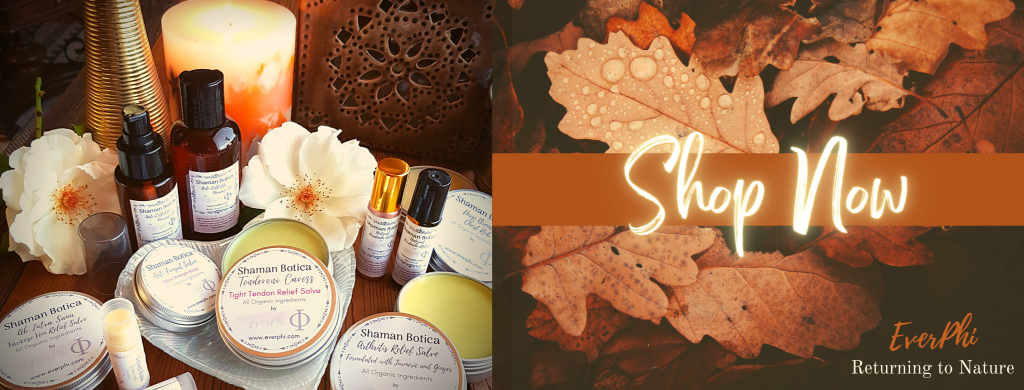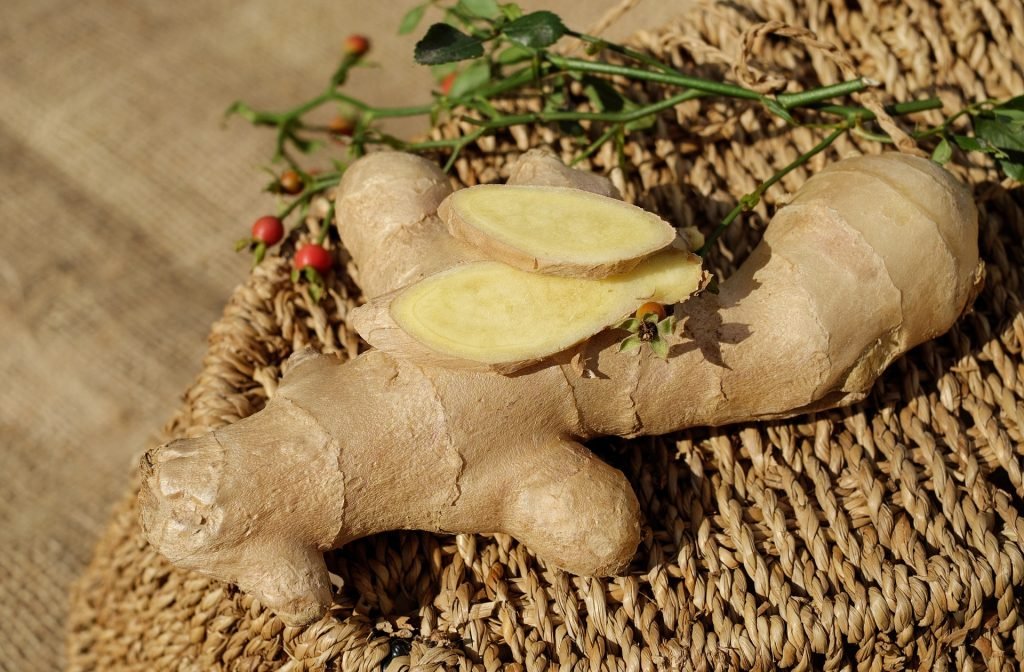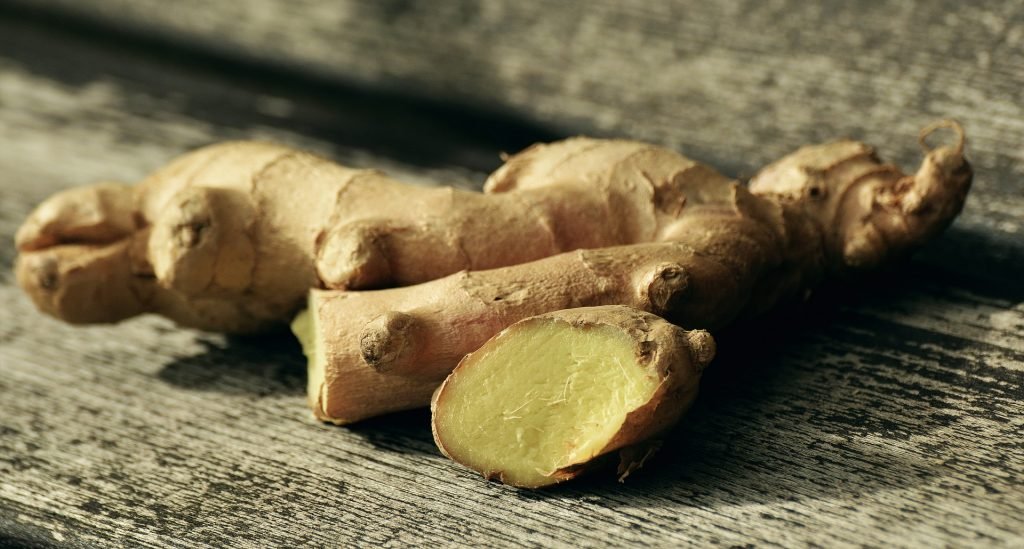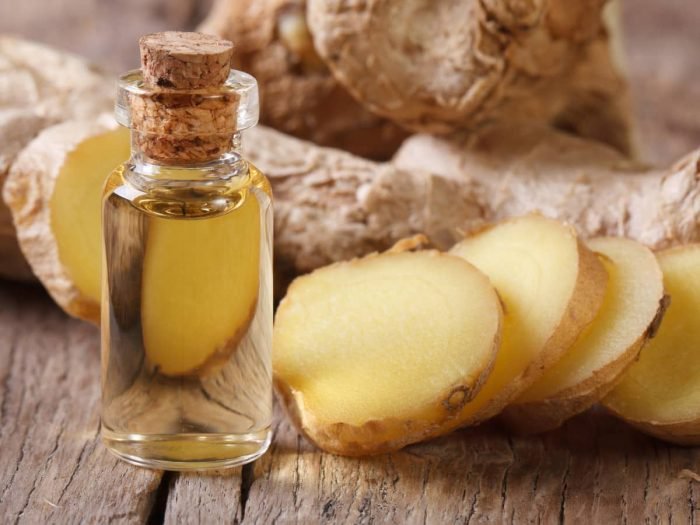
Ginger essential oil is the volatile substance extracted by distillation of unpeeled rhizome of Zingiber officinale Roscoe plant.
The essential oil of ginger has a strong, warm and spicy aroma. Its color is clear to light amber, and its consistency becomes thicker with age and exposure to air.
Zingiber officinale is a plant that grows in tropical regions, and is well known for its medicinal and culinary properties. As turmeric and cardamom, ginger also belongs to the family of Zingiberaceas.
Ginger essential oil blends well with neroli, clove, black pepper, rose (Rosa alba), turmeric, angelica, spikenard, cardamom, clary sage, sweet marjoram, plai, yuzu, fennel, jasmine, grapefruit, ylang ylang, coriander seed, lemongrass and may chang.
Ginger has been prized since ancient times, is originally from China, India, Japan and throughout Asia, where it has been given a great use in the culinary, aromatic and medicinal areas.
It is believed that it was not exclusive to Asia, since when it was exported to Europe, it was used by the Romans and Greeks, and with the fall of the Roman Empire, the Arabs were the ones who began to market it.
Ginger is an important member of the Zingiberaceae family which includes over 48 genera and 1200 species including cardamom and turmeric. This is a highly aromatic family of plants, with most being prized for their exotic spicy aromas and tastes.
It is said that the Chinese emperor Yang (Shennong, which can be variously translated as “Divine Farmer”, “Divine Peasant” or “Agriculture God”. Character representative of the Chinese mythology that lived more than 5000 years ago), was the first to promote the practice of agriculture and the cultivation of different herbs. This allowed him to explore different specimens to know its benefits and uses. Even sometimes, poisonous herbs.
Emperor Yang implemented the consumption of herbal tea. He also wrote a recipe book of herbs and roots, which specified the medicinal plants discovered and the use that each of them had, among which was the ginger.
The main components of ginger essential oil include: ⍺-zingiberene (17.4-42.2%), ar-curcumene (5.6-18%), sabinene (8.7%), (E-E)-a-farnesene (3.4-10%), and β-sesquiphellandrene (8.8-11.3%).
Ginger oil has analgesic, antibacterial, anti-emetic, anti-inflammatory, antioxidant, antispasmodic, antitussive, aperitif, aphrodisiac, deputative, stimulant, laxative, febrifuge, carminative, digestive, expectorant, immune modulatory, rubefacient, stomachic and sudorific (CO2 extract) properties.
Among the most common uses of ginger oil are:
Ginger oil helps improve digestion and can be a great remedy for spasms, abdominal inflammation, constipation, dyspepsia, colic, indigestion, nausea, flatulencies, gas, menstrual pain and diarrhea.

Thanks to gingerols compounds (the compounds which give chilli peppers and black pepper their respective spiciness) that ginger oil possesses, its anti-inflammatory effect and the ability to improve the absorption process of vitamins and minerals has been proven.
Gingerols have been scientifically proven to reduce disease-causing inflammation in the intestines, and overall improve absorption of the vitamins and minerals in our body.
In addition, it controls the craving for consuming sugars, activates cell energy and promotes weight loss.
The antiseptic and carminative properties of ginger oil can help treat food poisoning, as well as intestinal infections and bacterial dysentery.
According to studies and tests, ginger oil can be used as an Anopheles mosquito repellent, a genus of the Culicidae family, which is the main carrier of malaria and yellow fever in India.
Ginger essential oil can help relieve and treat cough, flu, asthma, dyspnea and bronchitis. In fact, fresh ginger can expectorate both the throat and the lungs, and it is very common to add it to tea because of its calming effect.
Both ginger and its oil can decrease prostaglandins levels, which are compounds that are linked to pain, helping to reduce headache, migraine, and muscle and joint pains, among others.
This oil is especially helpful to soothe pains related to arthritis, rheumatism, osteoarthritis and similar diseases.
Using ginger oil on a regular basis, can decrease the risk of blood clots and arteriosclerosis. In parallel, it reduce cholesterol and strengthen the functioning of the heart. Additionally, Adults who consume ginger daily can reduce their risk of coronary heart disease by 13%.
On the other hand, adults who consume ginger every day have an 8% lower risk of developing hypertension (high blood pressure).
According to a study done in 2005, ginger can lower blood pressure by blocking calcium channels dependent voltages.
A research published in the journal Nutrition, suggests that consuming 2 to 4 grams of ginger daily can help prevent chronic diseases.
Improves the function of alcoholic liver, which is related to liver cirrhosis and liver cancer.
It is one of the oils indicated to treat arthritis. Due to its gingerols, ginger oil has anti-inflammatory effects, reducing the production of chemicals that cause inflammation.
Even though, it does not cure arthritis in its entirety, but avoids the use of medications that can cause kidney problems, naturally controlling joint pain and inflammation.
Ginger oil has bactericidal and fungicidal properties. Consequently, helps eliminate infections caused by fungi and bacteria.
Because of the gingerol and zerumbone, potent antioxidant components, ginger oil is capable of destroying the oxidation of cancer cells and a certain receptor (CXCR4) of different cancers. Among them: skin cancer, kidney, lung and pancreas cancer. Destroying the cancer cells through apoptosis process (cancer cells kill themselves) and autophagy process (cells with cancer eat themselves).

In Ayurvedic medicine, ginger oil is used in the treatment of hair loss, to eliminate dandruff and to contribute to its healthy growth. In addition, it provides nutrients that strengthen it and give it shine.
It is used mixed with other oils such as argan, jojoba, olive, sesame, coconut, almonds, castor oil, among others.
It is applied to the hair and scalp massaging for 10 minutes, which favors blood circulation, absorbing the properties that counteract dryness, falling and the formation of dandruff. These results are fast and guaranteed.
Ginger oil has approximately 40 antioxidants, which act against aging, eliminating the toxins that come from free radicals. In addition, it helps stimulating circulation and providing more nutrients to the skin. Thus, we will achieve a firmer and youthful appearance.
Besides, it also prevents the formation of wrinkles, as well as, keeps the skin clean of impurities. Controls the formation of acne and reduces hypo-pigmentation.
Due to its analgesics components, ginger oil relieves stomach discomfort and nausea. So, it is a perfect ally during pregnancy, because it relieves morning sickness and nausea symptoms.
By applying a few drops of ginger oil in a handkerchief and aspirated, will automatically improve morning discomforts of pregnancy.
This is important to do under medical supervision.
The use of ginger oil is not contraindicated, while it is in the period of lactation.
According to a study, ginger oil increased breast milk production for 6 days after child birth, without presenting any alteration.
So it is considered very low risk in breastfeeding.
It is recommended to use ginger oil for babies, in small quantities, it will help relieve colic and discomfort in the gums by the appearance of teeth. However, its use must be careful and under medical supervision, since the babies are too sensitive.

Ginger oil has few side effects; however, caution should be exercised in the following cases: high doses will cause diarrhea, stomach pain and oral irritation.
Due to the fact that ginger oil can drastically reduce the tension, which is why it is not recommended for hypertensive people under medication.
On the other hand, for diabetics, it is noted that ginger oil has anticoagulants, which can cause more bleeding.